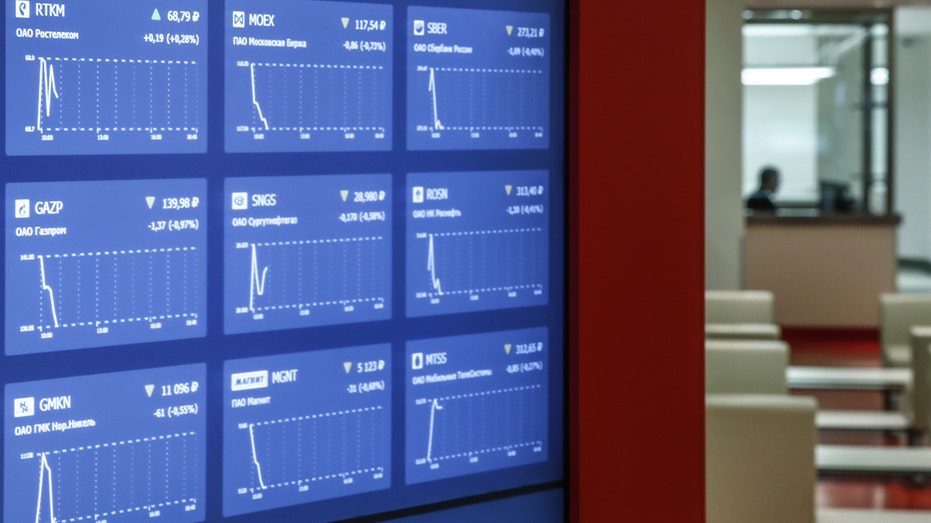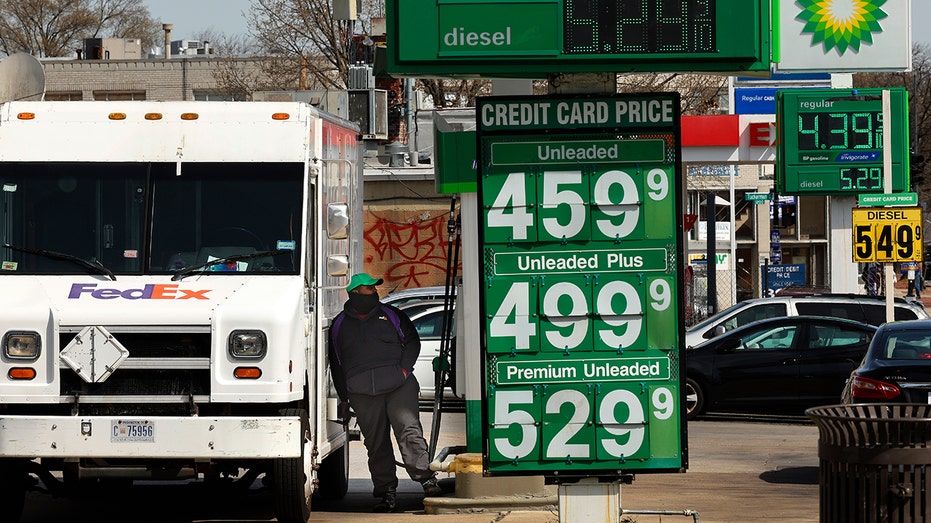Putin issues decree to hit 'unfriendly' nations with export blocks in potential blow to global economy
Putin could kill existing trade deals and further hinder global supply chains
The Russians have committed many ‘self-inflicted’ wounds: Dan Hoffman
Former CIA station chief Dan Hoffman discusses the Ukrainian’s successes against the Russians on ‘Fox Business Tonight.’
Russian President Vladimir Putin issued a retaliatory decree Tuesday to hit "unfriendly" states with export blocks in a move that could further hinder the global market.
The move would look to terminate existing deals and restrict the export of "raw materials and products" from Russia that serve in the interest of certain foreign entities.
RUSSIA INVADES UKRAINE: LIVE UPDATES

Russian President Vladimir Putin attends a meeting with top officials via videoconference at the Novo-Ogaryovo residence outside Moscow, March 31, 2022. (AP / AP Images)
The steps are in retaliations for the severe international sanctions that Russia has been hit with following its illegal invasion into Ukraine nearly 70 days ago.
The block would allegedly protect Moscow’s interests and counter "unfriendly actions which contradict international law by the United States of America and foreign states and international organizations that joined them," Russian media reported.
Putin alleged the international sanctions are "illegitimately depriving the Russian Federation, the citizens of the Russian Federation and Russian legal entities of [their] property right[s] and restricting their property right[s]."
Putin did not list which nations or foreign groups he would specifically target, but instead called on his government to approve a list of entities that will be sanctioned within the next 10 days.
HOUSE VOTES OVERWHELMINGLY TO SUSPEND NORMAL TRADE RELATIONS WITH RUSSIA, BELARUS

The Moscow Exchange reopened on March 24 after months-long shutdown amid tough sanctioning from international community. (Reuters/Maxim Shemetov / Reuters Photos)
Russia has already issued retaliatory sanctions against the U.S. and other NATO allies, but the latest threat could cause a new round of economic turmoil as it would allow Moscow to void existing deals – a move that could create global shockwaves.
Human rights officials have been sounding the alarm that global food supplies are expected to be negatively impacted, which could prove catastrophic for international famine.
Before the war in Ukraine, Kyiv was responsible for contributing more than 10% to the global wheat market.
If Russia then moves to block its own wheat exports or voids existing deals, up to 30% of the global wheat supply could be impacted, reports noted earlier this year.
Ukraine and Russia similarly account for just under 30% of the world’s barley supplies, which is largely used to feed cattle.

Gasoline prices hover around $4 a gallon for the least expensive grade at several gas stations in Washington, D.C., on April 11, 2022. (Chip Somodevilla/Getty Images / Getty Images)
Corn and sunflower seed – used for cooking oil – have also seen export vulnerabilities.
Prices across the globe have jumped at the pump and in grocery stores following first the global coronavirus pandemic, and then supply chain issues and spiking inflation. But Putin's decree to block global trade could have further substantial economic repercussions.





















